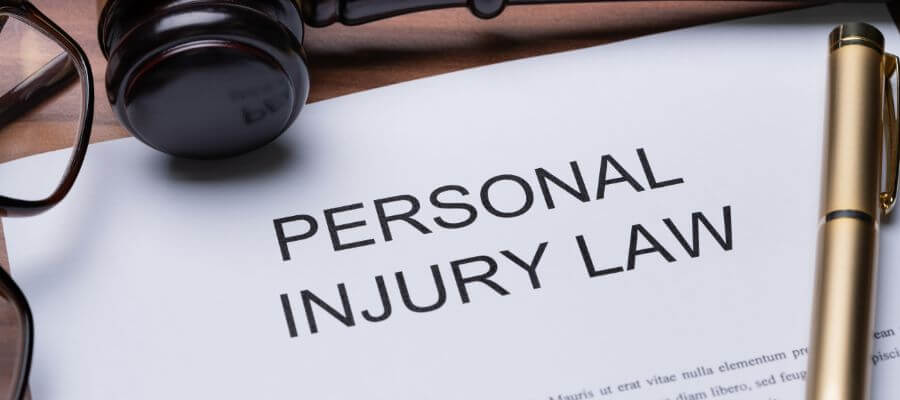What is Personal Injury Law?
Tort law, commonly referred to as personal injury law, offers a legal structure for individuals harmed by someone else’s negligence or deliberate actions. This legal field enables victims to pursue restitution for their pain and damages.
Negligence is the foundation of personal injury law. When someone fails to act with the care that a reasonable person would in the same situation, they may be held legally responsible for any resulting harm. This can cover many scenarios, from car accidents and slip-and-fall incidents to medical malpractice and workplace injuries. Understanding the basics of negligence and liability is crucial for anyone needing to pursue a personal injury claim.
Common Types of Personal Injury Cases
Personal injury law covers many incidents, but certain cases are more commonly seen. Prominent firms like the Rice Law Firm specialize in such cases, helping victims navigate complex legal landscapes and understand their rights and options. These include:
- Car Accidents: One of the most frequent causes of personal injury claims, car accidents can result in severe physical harm and significant financial loss.
- Slip and Fall Accidents: Property owners are responsible for maintaining a safe environment. They can be held liable when they fail to do so and someone gets injured.
- Medical Malpractice: Healthcare professionals are obligated to care for their patients. Breaching this duty results in injury or worsened condition, which constitutes malpractice.
- Dog Bites: In numerous regions, pet owners are strictly responsible for any harm caused by their pets, especially if they know about their aggressive behaviors.
- Workplace Injuries: Employees who get injured while working could receive compensation by filing workers’ compensation claims or, in specific situations, by suing for personal injury.
How Personal Injury Law Helps Victims
Personal injury law is crucial in helping victims secure compensation for their injuries. Financial reparations can cover medical expenses, lost wages, and emotional distress. As the Expert Law Library outlines, victims who understand their rights are better equipped to pursue justice and receive fair settlements. This financial support is essential in alleviating the burden on the victim and their family, allowing them to focus on recovery rather than financial strain.
Steps to Take After an Injury
If you find yourself injured due to someone else’s negligence, it’s essential to follow a series of steps to protect your rights and strengthen your potential personal injury claim:
- Seek Medical Attention: This should be your priority. Prompt medical evaluation can improve your health outcomes and provide crucial documentation for future legal claims. Not seeking immediate care could be used against you as evidence that your injuries were not severe or were unrelated to the incident.
- Report the Incident: Whether the injury occurred at work, on public property, or in a traffic accident, make sure to report it to the appropriate authorities. This creates an official incident record, which can be vital for legal proceedings.
- Document Everything: Gather as much evidence as possible. This includes taking photos of the injury site, getting witness statements, and keeping detailed records of all relevant medical treatments. Comprehensive documentation helps substantiate your claims and provides a clear picture of the incident and its aftermath.
- Consult a Personal Injury Lawyer: Experienced attorneys can provide invaluable guidance and representation. They help ensure all necessary steps and deadlines are met to maximize your chances of a successful claim. A lawyer can also help you navigate the legal complexities and deal with insurance companies who may not have your best interests at heart.
Choosing the Right Lawyer
Selecting a personal injury lawyer is critical. Look for professionals who have a proven success rate in handling similar cases. Transparency, excellent communication skills, and a client-focused approach are essential. The AllLaw Guide offers practical advice on identifying key qualities of a competent lawyer. Taking the time to choose the right legal representation can vastly improve your chances of a favorable outcome.
Feel free to ask for references or case outcomes. Most reputable lawyers offer free consultations, allowing you to discuss your case without financial commitment.
The Legal Process for Personal Injury Cases
The typical process for personal injury cases involves multiple stages within the legal system:
- Investigation: Your lawyer will gather all relevant information, including medical records, police reports, and witness statements. This phase is crucial for building a solid case by establishing the facts and proving negligence.
- Filing a Complaint: This formal document outlines your claims and initiates the lawsuit. It’s filed with the court and served to the defendant with a specific response period.
- Discovery: Both parties exchange information and gather evidence supporting their respective positions. This stage can involve depositions, interrogatories, and requests for documents, helping to reveal crucial details about the case.
- Settlement Negotiations: Often, cases are resolved through settlements before reaching trial. Negotiations between your attorney and the defendant’s legal representative aim to achieve fair compensation. Skilled negotiation can save time and avoid the unpredictability of a trial.
- Trial: If an agreement cannot be reached, the case will proceed to trial. Depending on the evidence provided, a judge or jury will decide the result. Trials involve presenting arguments, examining witnesses, and answering questions, demanding thorough preparation and strategic planning from your attorney. Read more exciting articles on Apnewsday

 Education7 months ago
Education7 months ago
 Health7 months ago
Health7 months ago
 Game7 months ago
Game7 months ago
 Business7 months ago
Business7 months ago
 Tech7 months ago
Tech7 months ago
 Travel7 months ago
Travel7 months ago
 Entertainment7 months ago
Entertainment7 months ago
 Tech7 months ago
Tech7 months ago










